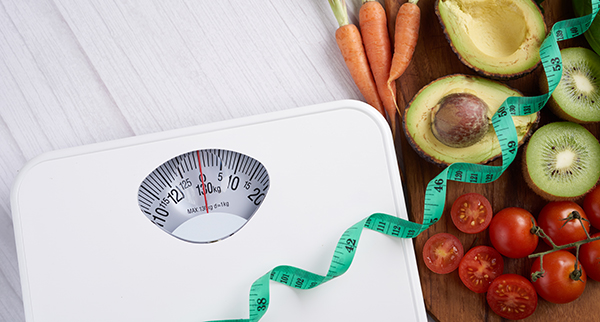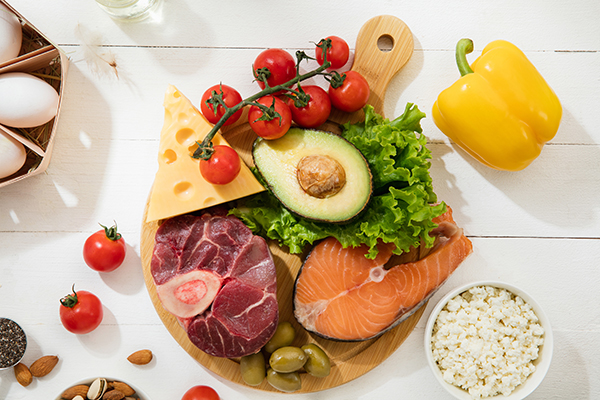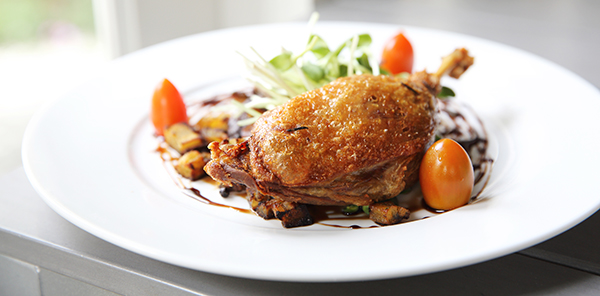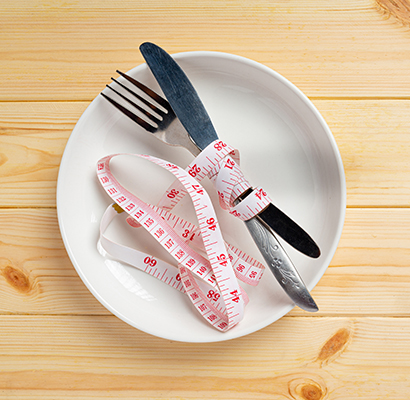Do you want to improve your health and appearance? If you’re looking for a safe, effective way to lose weight, the HCG diet may help. Understanding the HCG diet is key if you are determined to lose weight.
According to the official website of the Food and Drug Administration (FDA), HCG might lead to “more than a pound or two of weight loss per week” for obese people.
You have probably seen ads or heard about people talking about the HCG diet. It is a controversial weight loss plan that combines an extremely low-calorie diet with HCG supplementation. The HCG stands for human chorionic gonadotropin, which is produced during pregnancy by the placenta.
It is a hormone that women produce during pregnancy, and it’s available as an over-the-counter drug to help stimulate ovulation infertility treatment.
The diet usually includes 30 days of following a very low calorie (800 calories per day), HCG (or HGC) diet plan, while taking the HCG drops or injections.
In the U.S., prescription drug HCG is approved for women struggling with infertility, but the Food & Drug Administration has approved no over-the-counter weight loss drugs containing HCG for this purpose. The FDA has also issued a warning to consumers about fraudulent weight-loss claims for over-the-counter HCG weight-loss products.
The HCG diet promises fast results for people looking to lose a few pounds quickly. While some have credited it as a miracle weight loss solution, others have criticized it as unhealthy and even dangerous.
Simeons theorized that the HCG hormone channelled women’s stored fat into energy for their children. Therefore, he proposed that the hormone could be used to promote weight loss in anyone.
The HCG diet is a low-calorie diet that has participants consuming 800 calories per day, three meals per day, and two snacks. It is healthy, balanced, and nutritious. Dr. Simeons developed the diet, which uses the HCG hormone for weight loss through lean muscle retention, increased energy levels, increased metabolism, reduced formation of fat cells, and more.
The modern HCG diet combines manufactured supplements or hormone injections with calorie reduction. Divided into three phases, it’s a short-term eating plan intended to help people lose weight rapidly within three weeks. It can cause weight loss of up to one kilogram per day, but this obviously depends on how much excess weight you have.
The idea is that HCG helps rev up metabolism and energy, and without it, we’re in danger of slowing down our body’s fat-burning engine. Combined with a low-calorie diet, the assumption is that this will lead to significant weight loss within a short period. It is actually a fact that if one is committed and follows the protocol exactly, one can expect to lose 2.5 to 3 kilograms per week. The majority of people lose 10 kilograms in 30 days.
The HCG diet is balanced, healthy, and safe, and we supply a diet plan and endless delicious recipes. It’s touted as an effective way to lose weight quickly – though many point out that it’s due more so to extreme calorie restriction rather than any specific hormone or nutrients found in this system of eating for just a few weeks at first; some people claim they’ve seen amazing results after going through this process again with continuation over multiple months!
The HCG diet has proven that human chorionic gonadotropin (HCG) products plus a low-calorie diet will lead to rapid weight loss. Experts warn that you should steer clear of over-the-counter HCG supplements and only use high-quality HCG.
Phases of the HCG Diet Plan

- Loading phase: The loading phase is a two-day priming session that includes high-fat and calorie foods. HCG hormone supplements or injections are also given during this time to stock up on “normal” fats for future weight loss while preparing the body’s metabolism so it can burn away any extra calories stored in excess cells without difficulty.
- The Weight loss phase – The HCG weight loss phase begins. Here, followers consume either 500 or 800 calories per day with two meals and are encouraged to continue taking supplements during this period as well if they so choose for up to six weeks before going back on an individualized plan based on their long-term goals. It is perfectly safe to continue taking HCG and following the Low-Calorie Diet plan until you have reached your desired goal weight. Depending on how much weight you want to lose.
- The Maintenance phase—Some dieters on the HCG Diet stop supplementing after they’ve lost their desired number of pounds but gradually increase calories. Though there are no set numbers for how many calories this will maintain weight loss at 1,200 – 1500, it seems like a good target to aim for, as that’s what some people report being able to manage with success in maintaining their new figure once finished!
The HCG diet is a flexible and sustainable plan for weight loss, but it does have some strict guidelines. The “loading phase” allows you to eat whatever foods your heart desires without limits; however, once the actual weight-loss stage begins, these restrictions are put into place.
What Can You Eat within the HCG Diet?

The HCG diet is a strict 800-calorie daily diet plan, only available under medical supervision. It includes a very limited list of foods that can be eaten on the program: vegetables and fruit juices, lean meat, fish and seafood, eggs, cheese, and salad items. Allowed beverages include water and coffee or tea. All types of bread, rice, and beans are forbidden, as are any types of snacks or sweets.
There are recommended menus for men and women, along with many different recipes to help dieters lose weight.
The HCG hormone is believed to improve metabolism by causing fat cells to release fatty acids into the bloodstream. This “beta-oxidation” process is said to increase metabolism, allowing the body to burn an extra 500 calories per day. A low-calorie diet plan is believed to promote the body’s natural ability to tap into fat stores for energy and also prevent weight gain.
What do You need to Know About the HCG Diet Plan?
The key to losing weight with the HCG diet plan is choosing foods from a fairly limited list of allowable items. The following foods are generally allowed:
– Fruits and vegetables
– Meats, fish, poultry and fats (including egg yolks)
– Milk, cheese and yoghurt
– 100% whole-grain breads and cereals, legumes (dried beans), nuts and seeds
A low-carbohydrate diet is another way of achieving the results of an HCG diet plan. However, unlike the HCG diet plan, virtually no supplements are needed. In addition to a list of foods to choose from, a low-carbohydrate diet program might also recommend specific fruits and vegetables that are appropriate.
Another plus to the HCG diet plan is that many modern diets don’t prescribe a specific calorie level. In fact, you can eat as much as you want as long as you only select particular foods. A “food journal” might be helpful to make sure you’re staying on track.
The HCG diet plan is not recommended for pregnant women or nursing, those with epilepsy and heart conditions, and those younger than 18 years old.
The recommended diet recommends coffee or tea sweetened with stevia for breakfast. HCG also allows for one tablespoon of milk per day, so some people opt to put it in their morning cup of coffee.

The HCG diet is flexible and provides a calorie-counted meal plan that can be followed as long as you maintain your 800 daily limits. You don’t need any special cooking skills for this eating pattern. Still, many online resources offer suggestions of what to cook each day when staying within those 250 calories allocated at lunchtime or dinner time.
While the 500-calorie version of this diet is most well known, there’s also an 800-calorie plan credited to Dr Richard Lipman, who claims it adheres closer than other diets in substituting sugar and carbs with healthy eating options like more whole grains or yoghurt instead, however, they may experience less dramatic weight loss but have satisfied followers nonetheless.
HCG injections do not work the way they were originally theorized. While some studies have shown that they can cause weight loss, no study has confirmed this without examining what happens when you take HCG hormone supplements in tandem with an intense diet and exercise regimen—something many people would find impossible to maintain over time due to its demanding nature or cost (especially if one needs frequent doses).
Lean Protein for HCG Diet
The HCG diet is a low-calorie, high-protein plan that includes two daily meals. Each meal should consist of 3 1/2 ounces of lean meat or seafood, with an approved side dish such as vegetables and fruit for dessert.
Approved Vegetables for HCG Diet
Only certain vegetables are allowed on the HCG plan. To accompany lean protein at lunch and dinner, one serving of spinach or chard is necessary to provide energy for your body while you’re going through this fast-paced lifestyle change! You’ll also want some beets, greens (for their iron), celery root, and radishes—all good carbs that will help fill up any hunger pangs before they happen, so there’s no need for snacks between meals.
Also, remember that lettuce and tomatoes count towards vegetable intake, too! Stay away from starchy vegetables like potatoes, peas, and corn, which are too high in carbs.
Approved Fruits for HCG Diet
Apples, citrus fruits, and berries are some of the approved fruits for HCG-compliant meals. You can have two servings per day: one at lunchtime and another at dinnertime! The new, improved protocol allows you to have the fruits at a time of your choosing.
Herbs and Spices for HCG Diet
The HCG diet is a low-calorie, no-carb plan that uses spices and herbs to flavour food. This particular type of diet system often uses garlic cloves or fresh lemons mixed with salt to flavour meats and vegetables in recipes such as Italian Sausage Gyoza (Japanese Style).
Certain herbs, such as basil and thyme, are also allowed on the HCG diet. As long as herbs and spices don’t have any hidden carbs (like stevia), feel free to use them in your cooking.
Coffee, Tea, and Water for HCG Diet
On the HCG diet, you can drink as much coffee or tea as you like without calories. The only thing that has to be restricted is milk—but you are allowed one tablespoon per day for hot drinks like mochas and lattes!
Water is also a great tool for weight loss, and you can drink as much as you want (8+ glasses per day).
As long as the ingredients on the package don’t list any hidden carbs like xylitol, sweetener packets like Splenda are allowed. Stevia powder packs can be added to flavoured water or iced tea to add a sweet taste and zero calories.
Approved Condiments for HCG Diet
Ketchup, mustard, and mayo all have low carb levels, so they can be consumed while on the HCG diet. Just remember to measure out the serving size with a measuring spoon before adding it to your meal—don’t use your regular teaspoon!
Understanding the Effects of Artificial Sweeteners
Dairy Products
The HCG diet is a great way to get thin and stay that way. The one drawback? Dairy products like full-fat cheese or yoghurt are not allowed during your weight loss phase, so if you prefer the extra creaminess in your food, then this will not work for you! However, you can have fat-free cottage cheese, a limited amount of Mozzarella weekly, and, of course, fat-free yoghurt.
Some High-Carb Foods
The HCG diet is a restrictive regime that limits both the number and types of calories one may consume each day. While it’s possible to have Melba toast or one breadstick at dinner if they are light enough in carbs, all other grains like muffins and pasta will be off-limits for most people during this phase since carbohydrates interfere with fat-burning properties by raising insulin levels too much.
Fats and Oils in HCG Diet
Fatty foods and oils are not allowed on the HCG diet because they add 9 calories per gram. This goes for salad dressings, too! For this diet plan, you must stick to low-calorie or no-calorie dressings and use just a few dabs on your salad.
Are Sugary Beverages and Alcohol Allowed?
The HCG diet is all about healthy living. The only beverages allowed in this eating plan are water, coffee, or tea, and no alcohol at any point during your weight loss journey! You may also consume diet sodas, but only a maximum of three cans per day.
Are Sweets and Desserts Allowed?
Sweets and desserts may be tempting for those on the HCG diet, but they’re off-limits. Sweets contain lots of calories that can quickly add up if you aren’t careful about what foods you include in your plan—especially when high-calorie items like cookies or candies have just as many grams per serving size.
Pros and Cons of the HCG Diet

The pros are that:
- you can lose weight quickly
- it is easy to follow
- It curbs hunger
- It boosts the metabolism
- Increases Energy Levels
The cons are that:
- It is a restricted-calorie diet
- One has to be committed.
- Do you have safety concerns or legality issues
Let’s Talk a Bit More About the Pros of HCG
Rapid Weight Loss
Rapid weight loss is usually the result of going on an HCG diet. But as this evidence shows, injections do not have any influence over how much you lose and in which direction it comes down to – if at all!
If you want to lose weight and be healthy, there are also other ways than injecting HCG.
But HCG can also be very helpful in many ways when it comes to weight loss. Just make sure you know what to expect when using this weight-loss method.
Easy to Follow
The HCG diet is a great way to lose weight. The three phases and calorie targets are quite specific, as is the number of injections you need per day or week—which doesn’t vary by person!
And Let’s Talk a Bit More About the Cons
HCG is expensive and may be a good option for people who are looking to save money on groceries. On the downside, hormonal injections aren’t cheap at all! One kit could cost anywhere from R1,300-R3900 and last four to twelve weeks, depending on your weight loss goals.
HCG Has No Serious Side Effects
HCG is a hormone that people take for weight loss. It can have side effects, such as jitters and mood swings in the first few days, but this is typical of all diet plans. In some cases, it can cause a dry mouth, but this is actually good, as the more water you consume daily, the better it benefits your body and your weight loss.
HCG is known to have no harmful side effects; however, if you still feel unsure, you should consult a physician before taking this hormone. The good thing about HCG is that it does not interfere with any medications you may be currently taking.
One side effect which leads to weight loss and can happen particularly in big-breasted women is sometimes tenderness of the breasts, similar to that feeling of tenderness when pregnant. It, however, affects very few women who follow the HCG Protocol.
Is the HCG Diet a Healthy Choice for You?
Eating a well-balanced diet is essential for maintaining good health and happiness. The U.S. Department of Agriculture’s 2020–2025 Dietary Guidelines recommends eating nutrient-dense foods such as fruits, vegetables, legumes (lots), and whole grains like brown rice or quinoa, along with lean protein sources, including seafood, when possible, depending on your preference; but lean red meat, chicken, turkey, fish, etc., if you follow an HCG-type weight loss plan.
According to USDA guidelines, the recommended daily intake of food for women to maintain their weight is between 1,600 and 2,400 calories. For men, this range falls at around 2200-3200 calories per day.
People on the HCG diet benefit from the HCG forcing their bodies to use excess stored fat as energy. This is why this diet is so successful. They can eat far below the recommended daily intake without fear of malnutrition.
Women can improve their chances of success by ensuring they are not only active enough but also eating the right foods. The most important thing to do is to understand the nutritional content of what you’re putting into your body.
For example, instead of watching for calories, watch out for sugar! Excess sugar leads directly to weight gain and obesity. A high-fructose diet can lead to insulin resistance within 10 days. Once this happens, it becomes much harder to shed those unwanted pounds.
In addition to consuming too many calories, some foods have been linked with breast cancer—including those high in sugar and fat content. So try to avoid junk food as much as possible if you want to lose weight safely and healthily. Instead, eat a variety of lean proteins, whole grains, fruits and vegetables that will help you become healthier and happier.
Health Benefits of HCG

Though there are health benefits associated with the HCG diet, first and foremost, dramatic weight loss can be achieved. This weight loss results in many additional health benefits: it decreases bad Cholesterol, reduces High Blood Pressure, Stabilises Blood Sugar, and reduces joint pain. Metabolism is triggered and is working at its optimal level. Many people using HCG report an improvement in Arthritis. Then, there is the added benefit of improved skin, hair, and nails. In other words, there are numerous health benefits.
Health Risks of HCG
HCG is a hormone produced by the body that helps control hunger. However, it should not be taken by nursing Mothers. If you have serious Heart problems, then you should definitely consult a physician before embarking on the HCG Diet Protocol.
The key thing here, though, is that one must eat enough calories daily, so as long as one does not get more than what’s required, there should be no risk involved when taking HCG supplements.
At the end of the day, the question isn’t whether HCG is good for you—but carrying excess weight is certainly not healthy, and HCG most definitely can help you achieve your weight loss goal. Losing excess weight improves your overall health and well-being. It is not just about looking better, fitting into your clothes, etc.; it is a total transformation of your body and health.
It would be best if you understood the risks to your body of being overweight in order to make an educated decision.
Our Final Take on HCG
The more interesting part of this diet is that you can eat almost anything so long as it isn’t a carbohydrate or sugar-based food. While you can stop by the grocery store and still pick up some of your favourite frozen dinners, these have been loaded up with carbohydrates that work against any diet – especially while following an 800-calorie restricted plan.
On this type of diet, though, you can’t order anything from the menu since it’s all based around carbohydrates; foods like pizza, pasta, and even Indian naan bread are out! Instead, meal prepping at home is recommended so that you can cook your own meals using fresh ingredients without the worry of any additives or preservatives.
The HCG diet is a popular weight loss strategy that promises dramatic results. It is not only a weight loss plan but actually a lifestyle; it teaches you how to plan, prepare, and eat in order to maintain a healthy weight.
“We all deserve a healthy life. We know that following any diet may not be sustainable for very long periods, but we present the facts for you so that your decision will work best for your nutritional needs and goals.”
It’s important to know the difference between a fad diet and a sustainable one because fad diets can lead to unhealthy habits.
If you want to lose weight, it is not enough to lose weight. You must also think about how you can be healthy. Exercise, sleep, and other lifestyle factors are also very important when it comes to your health. The best diet for you is the one that fits your lifestyle.
If you’ve found this blog post informative and want to know more about the HCG Diet Plan, we have a team of friendly and highly qualified ladies who can answer all your questions. They can also help you get started with an HCG diet plan that is tailored specifically to your needs. You deserve it!

